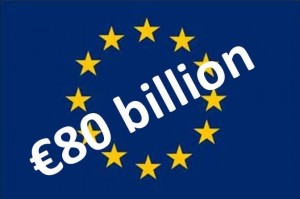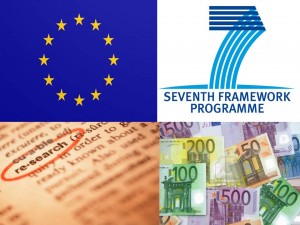 I am delighted to announce that Marie Curie Actions (which normally sit in the People Programme of FP7) looks like it is here to stay!
I am delighted to announce that Marie Curie Actions (which normally sit in the People Programme of FP7) looks like it is here to stay!
The goal of Marie Curie in Horizon 2020 is to ensure optimum development and dynamic use of Europe’s intellectual capital in order to generate new skills and innovation and, thus, to realise its full potential across all sectors and regions. The EC sees well-trained, dynamic and creative researchers as the vital raw material for the best science and the most productive research-based innovation.
THE EC feels that Europe hosts a large and diversified pool of skilled academics and l this needs to be constantly replenished, improved and adapted to the rapidly evolving needs of the labour market; particularly as a disproportionate number of researchers will hit retirement over the next few years and the research intensity of the EU economy is increasing.
 The goal is, by leveraging additional funds, to increase the numerical and structural impact of this scheme and to foster excellence at national level in researchers training, mobility and career development. Additional goals are to monitor progress, identify gaps and to increase their impact. Indicators shall be developed and data related to researchers‘ mobility, skills and careers analysed, seeking synergies and close coordination with the policy support actions on researchers, their employers and funders carried out under the ” Inclusive, innovative and secure societies” challenge.
The goal is, by leveraging additional funds, to increase the numerical and structural impact of this scheme and to foster excellence at national level in researchers training, mobility and career development. Additional goals are to monitor progress, identify gaps and to increase their impact. Indicators shall be developed and data related to researchers‘ mobility, skills and careers analysed, seeking synergies and close coordination with the policy support actions on researchers, their employers and funders carried out under the ” Inclusive, innovative and secure societies” challenge.
The EC will target early career researchers – either doctoral or postdoc – and call for EU to develop state-of-the-art, innovative training schemes, consistent with the highly competitive and increasingly inter-disciplinary requirements of research and innovation. Strong involvement of businesses, including SMEs and other socio-economic actors, will be needed to equip researchers with the innovation skills demanded by the jobs of tomorrow. It will also be important to enhance the mobility of these researchers, as it currently remains at too modest a level: in 2008, only 7 % of European doctoral candidates were trained in another Member State, whereas the target is 20 % by 2030. Mid-career mobility will also be targeted not only between countries, but also between the public and private sectors as this creates a strong stimulus for learning and developing new skills and is a key factor in cooperation between academics, research centres and industry across countries.
Former Marie Curie schemes have fostered some excellent results and this will continue with future Marie Curie Actions which will encourage new, creative and innovative types of training such as industrial doctorates, involving education, research and innovation players who will have to compete globally for a reputation of excellence. By providing Union funding for the best research and training programmes following the Principles for Innovative Doctoral Training in Europe, they will also promote wider dissemination and take-up, moving towards more structured doctoral training. Marie Curie grants will also be extended to the temporary mobility of experienced researchers and engineers from public institutions to the private sector or vice versa, thereby encouraging and supporting universities, research centres and businesses to cooperate with one another on a European and international scale.
Funding will most likely be around the following 4 areas:
- Fostering new skills by means of excellent initial training of researchers: The goal is to train a new generation of creative and innovative researchers, able to convert knowledge and ideas into products and services for economic and social benefit in the Union. Key activities shall be to provide excellent and innovative training to early-stage researchers at post-graduate level via interdisciplinary projects or doctoral programmes involving universities, research institutions, businesses, SMEs and other socio-economic groups from different countries. This will improve career prospects for young post-graduate researchers in both the public and private sectors.
- Nurturing excellence by means of cross-border and cross-sector mobility: The goal is to enhance the creative and innovative potential of experienced researchers at all career levels by creating opportunities for cross-border and cross-sector mobility. Key activities shall be to encourage experienced researchers to broaden or deepen their skills by means of mobility by opening attractive career opportunities in universities, research institutions, businesses, SMEs and other socio-economic groups all over Europe and beyond. Opportunities to restart a research career after a break shall also be supported.
- Stimulating innovation by means of cross-fertilisation of knowledge: Key activities shall be to support short-term exchanges of research and innovation staff among a partnership of universities, research institutions, businesses, SMEs and other socio-economic groups, both within Europe and worldwide. This will include fostering cooperation with third countries.
- Increasing the structural impact by co-funding the activities: Key activities shall be, with the aid of a co-funding mechanism, to encourage regional, national and international organisations to create new programmes and to open existing ones to international and intersectoral training, mobility and career development. This will increase the quality of research training in Europe at all career stages, including at doctoral level, will foster free circulation of researchers and scientific knowledge in Europe, will promote attractive research careers by offering open recruitment and attractive working conditions and will support research and innovation cooperation between universities, research institutions and enterprises and cooperation with third countries and international organisations.
 One of the major criticisms of EC funding is the complication of funding, rules and paperwork. Horizon 2020 seems a huge merger of activities which have been funded in FP7 under several different programmes, and generic rules are being developed in order to create substantial simplification for participants.
One of the major criticisms of EC funding is the complication of funding, rules and paperwork. Horizon 2020 seems a huge merger of activities which have been funded in FP7 under several different programmes, and generic rules are being developed in order to create substantial simplification for participants.
























 From Sustainable Research to Sustainable Research Lives: Reflections from the SPROUT Network Event
From Sustainable Research to Sustainable Research Lives: Reflections from the SPROUT Network Event REF Code of Practice consultation is open!
REF Code of Practice consultation is open! BU Leads AI-Driven Work Package in EU Horizon SUSHEAS Project
BU Leads AI-Driven Work Package in EU Horizon SUSHEAS Project ECR Funding Open Call: Research Culture & Community Grant – Apply now
ECR Funding Open Call: Research Culture & Community Grant – Apply now ECR Funding Open Call: Research Culture & Community Grant – Application Deadline Friday 12 December
ECR Funding Open Call: Research Culture & Community Grant – Application Deadline Friday 12 December MSCA Postdoctoral Fellowships 2025 Call
MSCA Postdoctoral Fellowships 2025 Call ERC Advanced Grant 2025 Webinar
ERC Advanced Grant 2025 Webinar Update on UKRO services
Update on UKRO services European research project exploring use of ‘virtual twins’ to better manage metabolic associated fatty liver disease
European research project exploring use of ‘virtual twins’ to better manage metabolic associated fatty liver disease